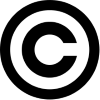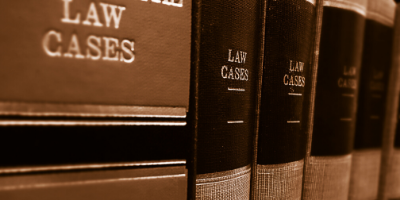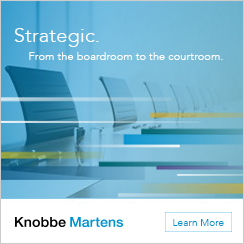Quarterly Journal Volume 53, Issue 1
In This Section
The Quarterly Journal is dedicated to presenting materials relating to intellectual property matters and is published four times per year. Editorial Board members (all of whom are lawyers) are selected based upon demonstrated interest and experience, and student staff members are selected from the students of the GWU Law School.
 QJ 53.1 - As Rare As Hen’s Teeth?: The Pervasive Dysfunctionality of IP Recording Systems
QJ 53.1 - As Rare As Hen’s Teeth?: The Pervasive Dysfunctionality of IP Recording Systems
Ronald Mann
This Article considers the dysfunctional nature of the existing systems for recording notice of security interests in patents and copyrights. It starts by discussing how the relevant recording statutes came into being, deriving in the 19th century from real-property recording statutes, but frozen at that stage. It then considers the leading cases for assessing priority of security interests in copyrights and patents, and then discusses practical and interpretive problems with those systems as those cases leave them. The Article closes by suggesting reforms that could be implemented by the courts in some cases, but by Congress in most.
 QJ 53.1 - How to Resolve Double Patenting: Recognize It Is An Archaic Legal Doctrine That Was Effectively Eliminated for AIA Patents
QJ 53.1 - How to Resolve Double Patenting: Recognize It Is An Archaic Legal Doctrine That Was Effectively Eliminated for AIA Patents
Brad D. Pedersen
The U.S. Patent and Trademark Office (USPTO) improperly attempted to expand the judicially created doctrine of double patenting through proposed rule changes in May 2024. These changes sought to simplify challenges to drug-related patent thickets by requiring broad concessions in terminal disclaimers, potentially invalidating entire patent families if a single claim was deemed invalid. Fortunately, the proposed rule changes were withdrawn. This article revisits the legal and policy reasons for why the proposed rules were improper for pre-AIA patents and statutorily unauthorized for AIA patents. It advocates for alternative approaches that eliminate doubling patenting for AIA patents and encourage enhanced examination and procedural reforms for all continuations applications which would better serve the patent system.
 QJ 53.1 - The Eminem Show(Down): Legal Face-Off Among Music Publishers, Streaming Services, and the Fifth Amendment
QJ 53.1 - The Eminem Show(Down): Legal Face-Off Among Music Publishers, Streaming Services, and the Fifth Amendment
Hunter Greenberg
Vested in copyright owners is the right to file an infringement suit when an unlicensed party infringes on the copyright owner’s original work of authorship. However, an amendment to the Copyright Act of 1976 removes this right from copyright owners of musical works (predominantly songwriters and music publishers) when a streaming service infringes upon their music. The problem with this amended provision is that it possesses characteristics suggesting it may be a regulatory taking under the Fifth Amendment. By applying the ad hoc takings analysis to this Limitation on Liability provision, this Note concludes that the provision in question can constitute a regulatory taking. Then, several recommendations are suggested to remedy this finding.
 QJ 53.1 - Boureé-ing Between Copyrighted Choreography and Uncopyrighted Dance: Where Do We Draw the Line?
QJ 53.1 - Boureé-ing Between Copyrighted Choreography and Uncopyrighted Dance: Where Do We Draw the Line?
Danielle Dittmar Peraza
While copyright law purports to protect choreography, choreographers and legal scholars face problems. Choreographers have rights pertinent to public performance and the public display of their work, but the law provides no helpful guidance when distinguishing between mere inspiration and outright copying. Choreography in copyright law has remained a largely undefined area. Very few courts have considered the scope of copyright protections for choreographic work. This Note proposes rethinking how we define “choreographic work” and moving towards a broader definition of choreography so that courts and parties may better distinguish protected elements and expression such that alleged defendants cannot hide behind the excuse that their copying was mere “inspiration.”
 QJ 53.1 - Rethinking the Obviousness Inquiry In the Age of Generative AI
QJ 53.1 - Rethinking the Obviousness Inquiry In the Age of Generative AI
Jaemin Sung
Human inventors are increasingly employing artificial intelligence in the inventive process. With the availability of generative AI, which can create new contents in a manner that exceeds human capabilities, inventors have the best tools at their disposal. However, in evaluating the patentability of AI-assisted inventions, the traditional obviousness inquiry under Graham does not adequately capture the extent of which a skilled person in the art can judge the obviousness of such inventions. This Note thus addresses the impact of generative AI on the level of ordinary skill in the art and the person having such skill in the art. It also discusses the need for a separate disclosure requirement for patent applications that claim AI-assisted inventions. Next, it proposes a set of criteria that augments the obviousness inquiry into AI-assisted inventions. Finally, it applies the proposed criteria to evaluating the obviousness of a controversial AI-assisted invention that was once rejected by the USPTO for listing AI as its sole inventor.
Upcoming Events
-
.png?sfvrsn=48c235e_1) 2026 Patent Prosecution Bootcamp - Arlington, VA
2026 Patent Prosecution Bootcamp - Arlington, VA
March 4 to 6, 2026 | Up to 1235 minutes, including 60 Ethics minutes
-
 AIPLA CLE Webinar: Damages 2025 Year-in-Review: Lessons and Litigation Strategies
AIPLA CLE Webinar: Damages 2025 Year-in-Review: Lessons and Litigation Strategies
March 11, 2026 2:00 PM to 3:30 PM | Eligible for up to 90 Mins CLE
-
.png?sfvrsn=20d96f46_1) AIPLA LinkedIn Live: What the 2025 AIPLA Economic Survey Reveals About IP Practice Today
AIPLA LinkedIn Live: What the 2025 AIPLA Economic Survey Reveals About IP Practice Today
March 12, 2026 12:00 PM to 12:45 PM
-
2026 Women in IP Global Networking Event
April 16, 2026
The annual Global Networking Event connects intellectual property practitioners from around the world for a day of networking, education, and creating meaningful connections. This year’s theme, Rooted in Real - Women in IP Redefining the Narrative, is an opportunity for the AIPLA Women in IP Law Committee to celebrate authentic experiences, foster genuine connections, and showcase the real stories of women shaping the field of intellectual property law. -
-(1).png?sfvrsn=169c8b82_1) Careers in IP
Careers in IP
April 22, 2026 12:30 PM to 1:30 PM | No CLE

